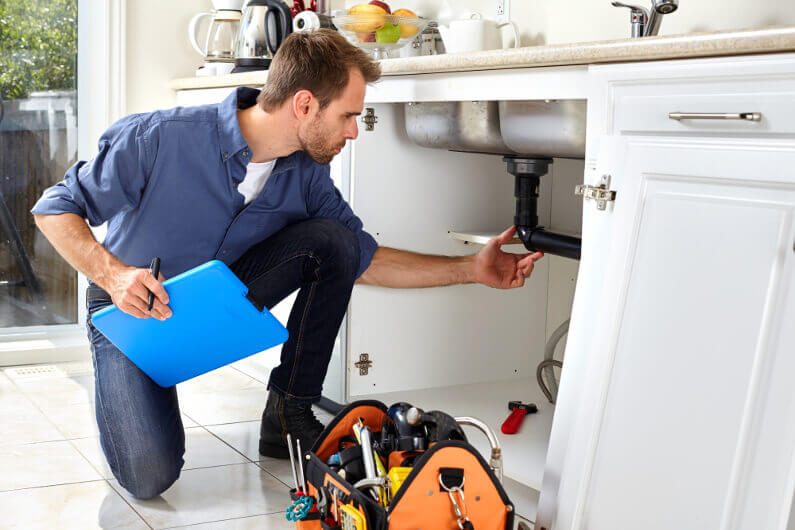
Image Source: Google
Dealing with a plumbing emergency can be a stressful experience for any homeowner. Whether it's a burst pipe, a clogged drain, or a malfunctioning water heater, these unforeseen disasters can cause a lot of damage if not addressed quickly and efficiently. If you are looking for an emergency plumbing services, you can explore https://www.franklinplumbing.com.au/emergency-plumber-torquay-geelong/.
1. Stay Calm and Assess the Situation
When faced with a plumbing emergency, it's important to stay calm and assess the situation before taking any action. Panicking can lead to poor decision-making and potentially make the situation worse.
Key points to remember:
- Turn off the main water supply to prevent further damage.
- Identify the source of the problem (e.g., burst pipe, leaking fixture).
- Consider the severity of the issue and whether you need to call a professional plumber.
2. Gather Necessary Tools and Supplies
Having the right tools and supplies on hand can make a big difference when dealing with a plumbing emergency. Make sure you have a basic toolkit and some essential plumbing supplies readily available in your home.
Recommended tools and supplies:
- Adjustable wrench
- Plunger
- Pipe wrench
- Plumber's tape
- Bucket
- Flashlight
3. Address Common Plumbing Issues
Here are some quick tips for addressing common plumbing issues that you may encounter:
a. Burst Pipe
- Turn off the main water supply immediately.
- Drain the faucets to relieve pressure in the pipes.
- Apply a temporary patch using plumber's epoxy or duct tape.
- Contact a professional plumber for a permanent fix.
b. Clogged Drain
- Use a plunger to try and dislodge the blockage.
- Pour hot water down the drain to help break up the clog.
- Avoid using chemical drain cleaners as they can damage your pipes.
- If the clog persists, consider calling a plumber for assistance.
c. Leaking Water Heater
- Turn off the power supply to the water heater.
- Shut off the water supply to the heater.
- Check for visible leaks and tighten any loose connections.
- Consult a professional plumber to inspect and repair the water heater.
4. Know When to Call a Professional
While it's possible to handle some minor plumbing issues on your own, there are times when it's best to leave the job to a professional plumber. Knowing when to call for help can save you time, money, and further damage to your plumbing system.
Signs that indicate you need professional assistance:
- Multiple clogged drains throughout your home.
- A sudden drop in water pressure.
- An unexplained increase in your water bill.
- Foul odors coming from your drains or pipes.
5. Take Preventative Measures
One of the best ways to avoid plumbing emergencies is by taking preventative measures to maintain your plumbing system. Regular maintenance and inspections can help you identify potential issues before they turn into costly disasters.
Tips for preventing plumbing emergencies:
- Inspect your plumbing fixtures for leaks and damage regularly.
- Avoid flushing anything other than toilet paper down your toilet.
- Keep grease, oil, and food scraps out of your kitchen sink.
- Consider installing a water leak detection system to alert you of potential leaks.
By following these quick tips for handling plumbing disasters, you can be better prepared to tackle any unforeseen emergencies that may arise in your home. Remember, when in doubt, always seek the help of a professional plumber to ensure the safety and integrity of your plumbing system.
